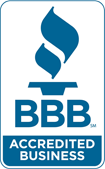
Lawyer Helping Alabama Residents Facing Foreclosures
Modifying a mortgage loan may be a useful alternative to bankruptcy. Typically, home mortgages are paid off over a long period of time. If a borrower defaults on a few payments, the lender is permitted to foreclose on the property. The two choices a borrower has when faced with foreclosure are to get a mortgage loan modification or to file for Chapter 13 bankruptcy. A capable Alabama foreclosure attorney, Charles Grainger can look at your specific situation and advise you on which choice will better serve your objectives. If you cannot obtain a loan modification through negotiation, filing for bankruptcy can be a sound choice.
How to Modify a Mortgage Loan
Loan modifications permanently alter the terms of your mortgage. This means your interest rate will be reduced, or the length of the loan term will be extended. To get a modification, you need to tell your lender you aren’t able to repay under the original terms. You will need to provide an explanation and substantiating documentation if you request a loan modification. This includes all documents associated with your mortgage, your income, your expenses, and any reason why you are unable to pay. Reasons could include documentation showing you were terminated from your job or that you have become disabled.
In our experience, the prospect of getting a mortgage loan modification encourages people to get significantly behind on their house payment to the point of them losing their home or being forced into a Chapter 13 repayment plan. There have been numerous lawsuits and complaints against the mortgage industry due to loan modifications. They will frequently lose our clients’ paper work and drag it out for 6 months to 2 years before saying “no.” Most loan modifications are denied and the combination of delays and the denial usually put people in a much worse position than when they started the process. In our practice, loan modifications are the leading cause of foreclosure that we see.
Another dangerous aspect of loan modifications is that the departments of mortgage companies operate independently so that while the loss mitigation department is encouraging you to re-submit lost paperwork or telling you they just need “one more thing” over-and-over, another department has sent one’s mortgage to the attorney for foreclosure. Alabama law only requires notice of the foreclosure be published in a newspaper so you may not even become aware of it until it is too late.
Interestingly, someone who has bankruptcy protection in a Chapter 13 seems to have better success in obtaining approval of a loan modification. About once a month we will file a motion on behalf of one of our clients to obtain approval of a loan modification. The supervision of the federal bankruptcy courts seems to make a difference.
Before you go into your negotiations, you should be aware that a lender will only agree to a mortgage loan modification if it is financially more sound for the lender to negotiate with you for a modified loan than to have to foreclose on your home or deal with your bankruptcy. For example, if there is significant equity in your home, they may not be motivated to approve it. Your goal during negotiations should be to show why a loan modification would be in your lender’s best interests from a financial perspective. On the other hand, bank lenders don’t have an incentive to modify loans until a borrower has missed mortgage payments already. In most cases, you do not want to purposefully miss a mortgage payment because it will affect your credit rating.
If you are behind in your mortgage payments and have the income to pay, but simply need a small modification to do so, the lender is likely to want to negotiate not only a loan modification but also payment of the arrearage. You can try to set up a payment plan for the arrearage if you can’t afford to pay all of it right away. However, you should run any loan modification terms by an attorney before agreeing to the lender’s terms. We have seen some proposed modifications adding $8,000 to $10,000 to what our clients owed so beware. You do not want to agree to a modification that will be too hard to stick with over the long term. An attorney can also tell you whether Chapter 13 bankruptcy is likely to be a better option for you than seeking a loan modification.
One of the federal programs designed to make loan modification feasible for a broader range of people is the Home Loan Modification Program. If your loan is owned by Freddie Mac or Fannie Mae, and you are not able to pay your mortgage, you may be able to obtain a modification through this program. There are several requirements to qualify.
Discuss Your Financial Situation with a Montgomery Bankruptcy Attorney
There are times when loan modification simply won’t offer full relief. One such instance is when you have significant consumer debt, such as medical bills and credit card bills, in addition to difficulty paying off your mortgage. Another such instance is when a bank refuses to provide a mortgage loan modification and starts the foreclosure process. In that case, Chapter 13 bankruptcy offers tools that may help you save your home and other assets. Experienced bankruptcy lawyer Charles Grainger has helped many clients in the Montgomery area evaluate their financial options. We serve South-Central Alabama clients from offices in Montgomery, Prattville, and Troy. Call us at (334) 260-0500 or contact us through our online form.


 Attorney Charles Grainger possesses decades of legal experience focused on debtor-creditor law, bankruptcy, and business law. His legal work is designed to help clients overcome debt and secure a stronger financial footing. He also provides legal services to entrepreneurs and business owners. Grainger Legal Services takes a comprehensive approach to debt relief and financial education for clients in south-central Alabama. [
Attorney Charles Grainger possesses decades of legal experience focused on debtor-creditor law, bankruptcy, and business law. His legal work is designed to help clients overcome debt and secure a stronger financial footing. He also provides legal services to entrepreneurs and business owners. Grainger Legal Services takes a comprehensive approach to debt relief and financial education for clients in south-central Alabama. [ 


